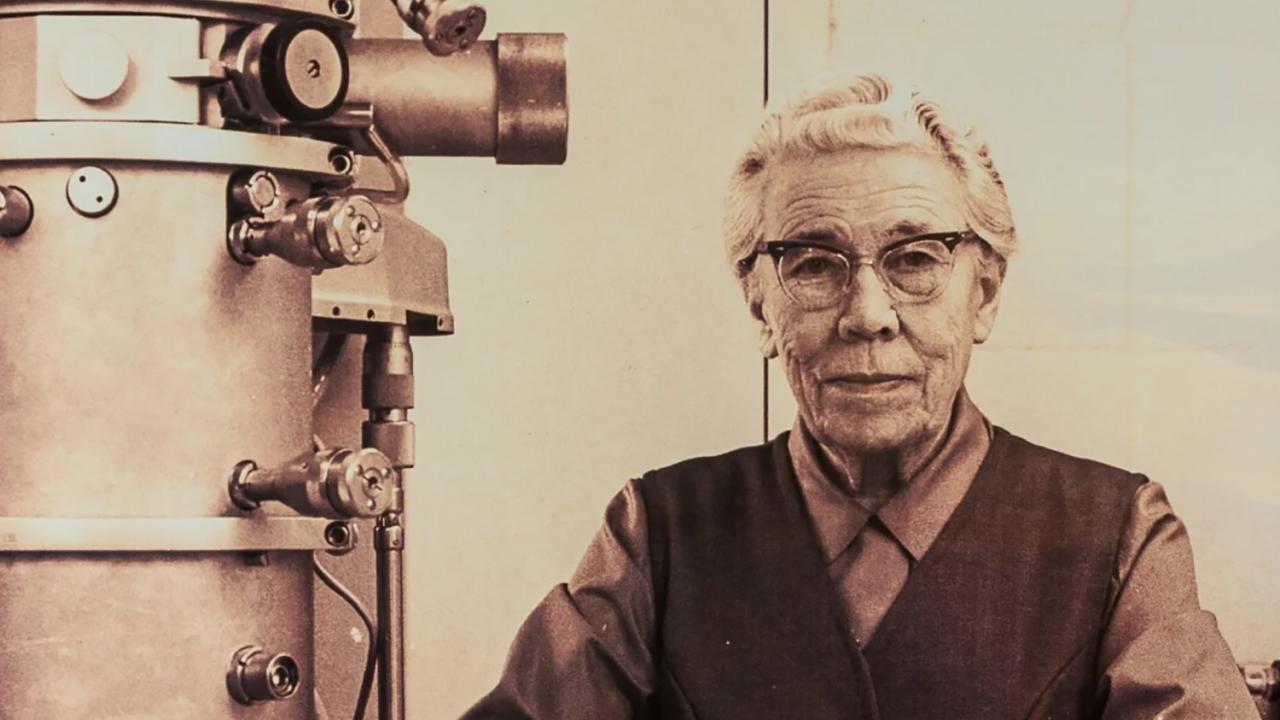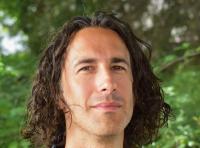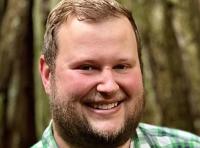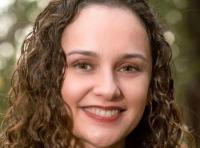
A Gift Grows On: The Legacy of Katherine Esau
Esteemed plant biologist's gift continues to support innovation and discovery
In 1988, a 90-year-old alumna and former faculty member gave $648,000 to UC Davis to establish an endowment that would fund plant research fellowships in perpetuity. Still driving discovery today, her gift demonstrates the power of an endowment to benefit the world for generations.
Katherine Esau Ph.D. ’31 is widely known as one of the most influential plant biologists and professors in history. Esau’s pioneering work on plant anatomy and structure laid the groundwork for much of today’s research in the field—and her impact on campus reaches even further.

Named in Esau's honor
Esau’s legacy at UC Davis is so profound, that university has rechristened the Sciences Laboratory Building with a new name: Katherine Esau Science Hall. On September 23, 2022, the College of Biological Sciences hosted an official renaming ceremony with invited speakers who had worked with - or been mentored by - Esau. The ceremony drew over 100 people who gathered to hear firsthand accounts of Esau, her legacy and the impact she has had on generations of plant biologists.
Support for students and researchers
The Katherine Esau Fellowship program provides funds to postdoctoral researchers, junior faculty members and graduate students. As of 2020, the endowment’s market value has increased by almost six times its original amount, standing at $3.7 million.
Meet some of the fellows and the essential work they’ve contributed.
Crops that survive drought

Ongoing research on acacia plants, which are drought-and desert-adapted by transitioning from horizontal leaves to vertical ones, could be applied to more common crops to help them thrive amidst drought and climate change. The acacia’s novel form of leaf development is thought to help with thermoregulation by allowing the plant’s leaves to avoid sunlight during the warmest period of the day.
“The Esau Fellowship program was very beneficial for me as it helped me come to UC Davis and pursue a very niche interest. The research funding was essential because there was no funding for this in labs—it allowed me to go in a novel direction that not everybody is thinking about.”
Aaron Leichty
Principal investigator at USDA Plant Gene Expression Center and adjunct professor in Department of Plant and Microbial Biology at UC Berkeley
2018 Postdoctoral Fellow
Coast redwood and sequoia mega-genomes sequenced
In 2021, scientists in Professor Emeritus David Neale’s lab successfully completed sequencing the coast redwood and giant sequoia genomes. The research helps to better explain the genetic basis for these species’ ability to adapt to their changing environments and could help conserve and restore the majestic trees.
A new leaf for redwoods

A 2022 study revealed that redwoods have two types of leaves, one to make food and the other to absorb water. It is the first to estimate whole-crown water absorption in a large, mature tree and could help scientists monitor the ability of trees to adapt to changing climates.
“The Esau Fellowship provided financial support that enabled me to focus on my dissertation and not have to teach for one quarter. I love teaching, but the extra time really allowed me to focus on my research."
Zane Moore
Ph.D. ’24, plant biology
2020 Graduate Student Fellow
Missing link in evolution of photosynthesis and carbon fixation

A 2020 study found a missing link in the evolutionary history of the carbon-fixing protein RuBisCO. The previously unknown form of RuBisCO, found through genome sequencing of environmental samples and synthesized in a lab, dates back 2.4 billion years and could give new insight into plant evolution and breeding. The enzyme is found in all plants and other photosynthesizing organisms. It plays a key role in fixing carbon from the air and has helped shape life on Earth.
Patrick Shih
Former assistant professor of plant biology
2019 Junior Faculty Fellow
Flood-resistant crops

A 2019 study revealed that rice—the only major food crop currently able to survive flooding—shares 68 genes involved in flooding adaptations with tomato plants. In rice, these genes respond to flooding in a way that allows the food crop to thrive. The study might help inform how to breed more flood-resilient plants.
“The first thing I said when I was selected for a faculty interview at UC Davis was, ‘I can’t believe I’ve been asked to interview at the home of Katherine Esau’. Everything she accomplished, especially as a woman in biology, is just really inspirational.”
Siobhan Brady
Professor of plant biology
2012 Junior Faculty Fellow
Media Resources
- This story appeared originally in the UC Davis Development and Alumni Relations magazine In Greater Focus.
